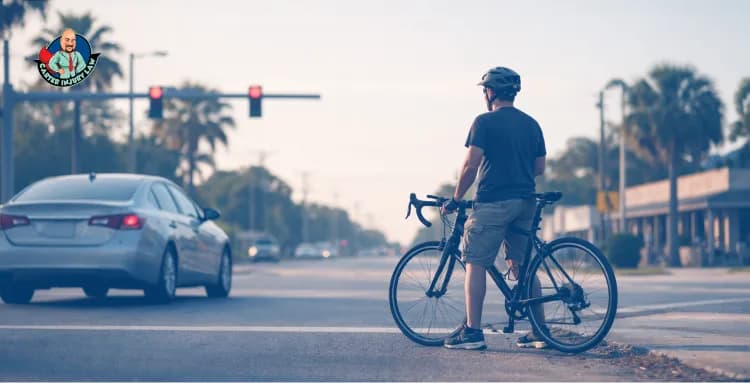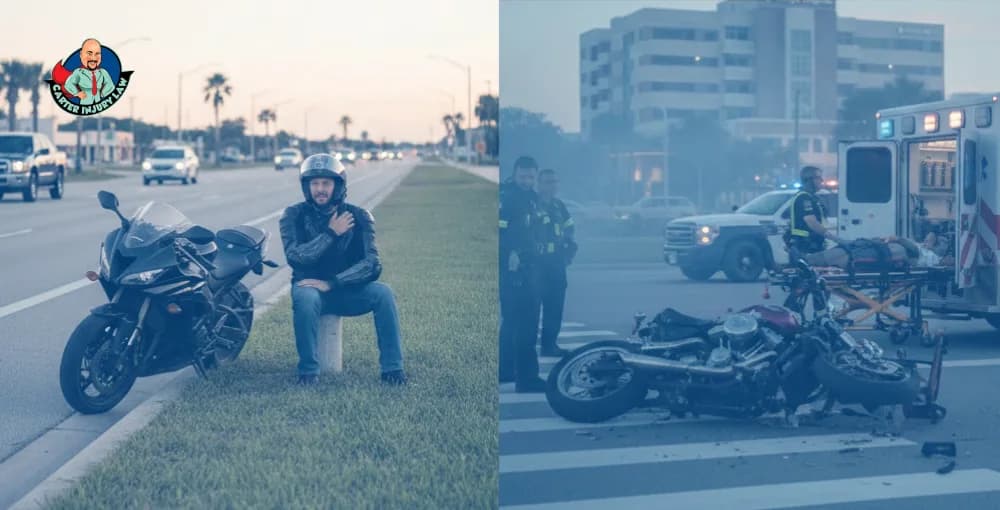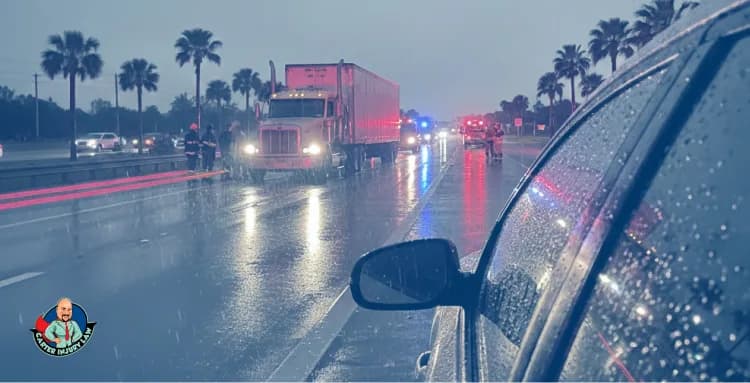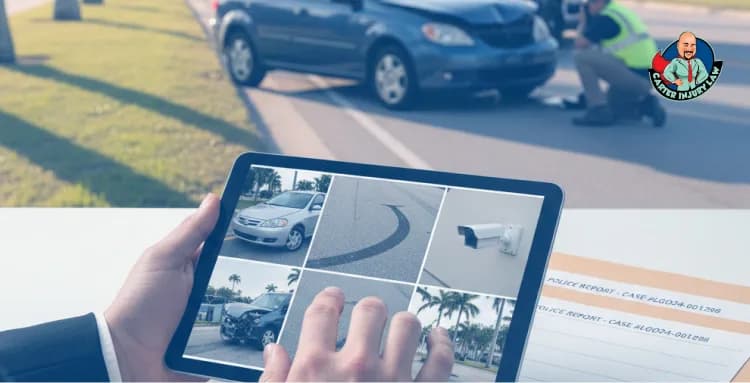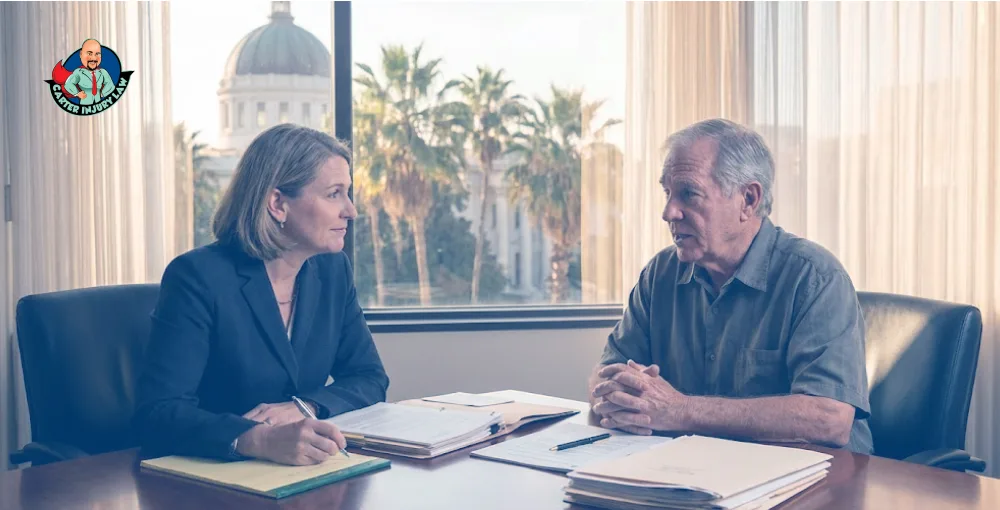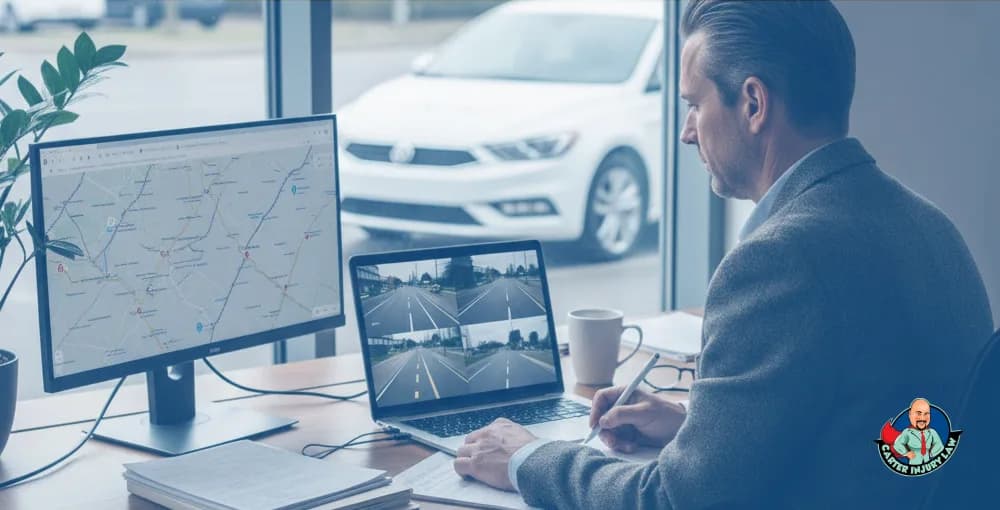Suppose you're doing someone a favor. You borrow a friend's car to run a quick errand, or perhaps you are the designated driver for the evening. The next thing you know, you're involved in an accident. The car has been damaged, people have been shaken up, and you're suddenly drowning in questions: am I responsible? Whose insurance pays out? Is this going to jeopardize my record?
A surprising number of accidents involve drivers behind the wheel of another person's vehicle. In fact, 1 in 5 younger drivers admit to regularly driving cars they don’t own. Accidents in borrowed cars, whether it's a family car, a roommate's ride, or even your boss's vehicle, involve a unique combination of legal responsibility, insurance red tape, and a little awkwardness.
We'll break it down clearly: who is legally liable and what to do immediately following the accident.
1) Who’s Legally Responsible?
When you borrowed someone else's car and ended up in an accident, the most pressing question is who is legally liable. Let's look at it in more detail.
In the context of auto insurance, "permissive use" refers to situations in which the car owner has explicitly or implicitly given someone, such as you, permission to drive their vehicle. This concept is important because the owner's insurance policy often covers permissive users.
In most cases, if you drive someone else's car with their permission, their auto insurance policy will provide primary coverage in the event of an accident. This means that their insurer would typically handle any claims for damages or injuries caused by the incident.
However, permissive users should be aware that this coverage may be subject to certain limitations or higher deductibles.
“About 77% of auto insurance policies in the U.S. cover permissive use.”
Source—NAIC report
While permissive use frequently provides coverage, there are some notable exceptions:
Business Use: If you use the borrowed vehicle for business purposes, such as deliveries or ridesharing, the owner's policy may not cover any resulting accidents unless it specifically states so.
Unlicensed or Inexperienced Drivers: If the person borrowing the car does not have a valid driver's licence or is deemed inexperienced, the insurance company may refuse coverage.
Non-Permissive Use: If someone takes the car without the owner's permission, any accidents that occur may not be covered by the owner's insurance policy.
It's important to note that permissive use coverage is common, however not universal. Most major insurance companies include it in their policies, though the specifics vary. Always review the policy's terms to determine the scope of coverage.
2) Immediate Steps to Take After the Accident
What can you do after getting into an accident while driving someone else's car? First and foremost, take a deep breath. The situation must be handled calmly and professionally. Here's what you need to do:
Check for injuries and dial 911: Ensure the safety of yourself and any passengers. If someone is injured, contact emergency services right away. Turn on the hazard lights to warn other drivers. Even if the accident appears to be minor, it is advisable to call the police. An official report can be extremely useful for insurance claims and legal proceedings.
Exchange Information with Involved Parties: Collect relevant information from all drivers: full name, contact info, driver's license, and plate numbers. Record both the license number and the vehicle’s plate number. Include insurance details—company names and policy numbers. Note the vehicle's model, color, and year. Avoid discussing fault or making statements that may imply guilt.
Document the Scene: Take detailed photographs of the vehicles, any visible damage, the surrounding area, and any relevant road signs or signals. Note the time, date, and location of the accident. If there are any witnesses, gather their names and contact information.
Contact the Car Owner Immediately: Inform the vehicle owner of the accident as soon as possible. They must contact their insurance company to report the incident. Share all of the information you've gathered with the vehicle owner to help with the insurance claim process.
3) The Car Owner’s Role in the Process
Even if you weren't driving, you still need to take certain precautions to protect yourself and your vehicle. Let's break it down:
Reporting the Accident to Your Insurance Provider: First and foremost, notify your insurance company of the accident as soon as possible, preferably within 24 hours. Even if you were not driving, your insurer should be aware of any incidents involving your vehicle. Provide them with all pertinent information, including the driver's name, the circumstances of the accident, and any available documentation, such as the police report.
Repair Claims and the Potential for Premium Increase: Once the claim is filed, your insurer will evaluate the damage and estimate the cost of repairs. Keep in mind that even if you were not at fault, filing a claim may result in an increase in your insurance premium. According to Bankrate, depending on your state and insurance company, your insurance premiums may rise after an accident. The increase usually lasts three to five years, depending on your insurance company and state regulations.
Subrogation Possibilities If the Driver Is Found At Fault: If the person driving your car is found at fault, your insurance company may pursue a process called subrogation. This means they will request reimbursement from the at-fault driver's insurance company for the amount paid out in the claim. If successful, this can help you recover your deductible and potentially keep your premiums from rising.
More Relevant Blogs You May Find Useful:
What Should You Do if You’re the Defendant in a Florida Car Accident Lawsuit?
Can You Still Have a Personal Injury Case If There’s Little to No Car Damage?
Should You Accept an Insurance Company’s Offer to Pay Your Medical Bills After an Accident?
4) In an Accident With a Borrowed Car? Here’s How Carter Injury Law Protects You
We understand that the insurance industry does not make things easy. That's why we're here to help you understand, protect your rights, and move your case forward, whether you were driving someone else's car or someone crashed into yours.
Carter Injury Law does more than just file claims; we manage the entire process. We'll deal with the insurers, determine liability, and handle legal details such as subrogation and damages, so you can rest easy. Our job is to keep you away from unnecessary expenses and stress.
If you've been in an accident with a borrowed car and aren't sure where to start, contact us. The sooner you speak with us, the more options you will have. For a free case review, please contact Carter Injury Law at 813-922-0228 or visit carterinjurylaw.com.



